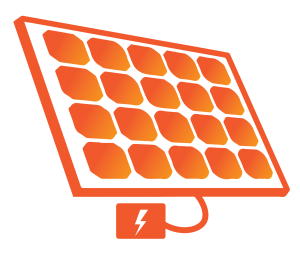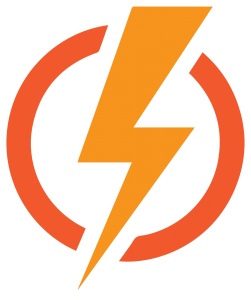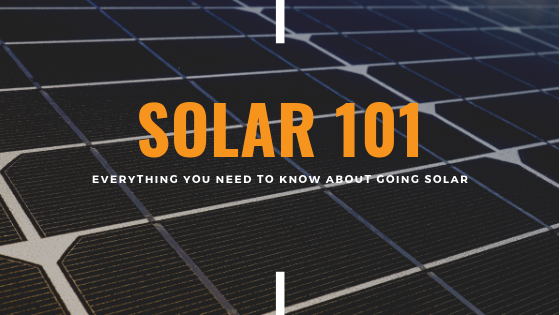
A product is only as good as its warranty. When it comes to solar energy systems, there are multiple components to a warranty, and it is important that you understand each component to make sure you get the best protection for your solar system. Equipment warranties are fairly standard in the solar industry, but comparing labor (workmanship) warranties can help you identify a great solar installer and protect your investment for the long term.
What is covered in a solar panel warranty?
There are three main areas you should pay attention to when evaluating a solar panel warranty:
 |
Equipment – Will your solar panels and other system components, including your microinverters (or string inverters) stand the test of time? |
 |
Power Production – How much power will your panels generate over the long-term? |
 |
Labor and Workmanship – If something goes wrong the equipment, who is responsible for the repairs? |
Labor or Workmanship Warranties
 The labor or workmanship warranty is where you’ll find the most variation in warranties. This portion of the warranty is determined by the installer you use, and states how many years the installer will agree to fix any failures within the system, and what charges (if any) you would incur for those repairs. Look for a warranty to cover your system for at least as long as the equipment warranties (25 years plus). Many companies only provide 5 or 10 year warranties. If your system requires repair after the labor warranty runs out,
The labor or workmanship warranty is where you’ll find the most variation in warranties. This portion of the warranty is determined by the installer you use, and states how many years the installer will agree to fix any failures within the system, and what charges (if any) you would incur for those repairs. Look for a warranty to cover your system for at least as long as the equipment warranties (25 years plus). Many companies only provide 5 or 10 year warranties. If your system requires repair after the labor warranty runs out,
Equipment Warranties
Equipment warranties are supplied by the manufacturers. Look for product warranties that cover at least 25 years for the solar system, and 5-10 years for a backup battery, if your system has one.
 Microinverter Warranty – Your microinverters (or inverter) will have one warranty to cover that portion of your system in case it fails. Microinverters (or inverters) are the portion of the system that convert the solar panel to usable energy, so it is important that the warranty be strong to guarantee your system will continue to operate. Older style string inverters are known for being points of failure for systems, so this warranty is important for long-term production.
Microinverter Warranty – Your microinverters (or inverter) will have one warranty to cover that portion of your system in case it fails. Microinverters (or inverters) are the portion of the system that convert the solar panel to usable energy, so it is important that the warranty be strong to guarantee your system will continue to operate. Older style string inverters are known for being points of failure for systems, so this warranty is important for long-term production.
☀️READ | More details about the differences between inverters.
Solar Panel Equipment (or Product) Warranty – Solar panels are extremely tough. The panel equipment (or product) warranty provides insurance over the integrity of the panel itself. It protects you against problems such as manufacturing defects, environmental issues, premature wear and tear, and more. Panels can be expected to last well beyond the the warrantied lifespan.
 Solar Panel Power Production Warranty – Over time, solar panels degrade slightly, losing a portion of the power production capacity. The production warranty provides assurance that the panel will produce at least a certain percentage of its original capacity. Good quality panels will guarantee 80%-90% production after 25 years. If your panels degrade faster than your warranty specifies, the manufacturer is responsible for repairing or replacing them.
Solar Panel Power Production Warranty – Over time, solar panels degrade slightly, losing a portion of the power production capacity. The production warranty provides assurance that the panel will produce at least a certain percentage of its original capacity. Good quality panels will guarantee 80%-90% production after 25 years. If your panels degrade faster than your warranty specifies, the manufacturer is responsible for repairing or replacing them.
SunSource is ahead of the pack when it comes to the labor warranty for residential systems. SunSource guarantees residential installations 25 years of covered labor costs as a part of your solar panel warranty. And the system warranty will transfer to the next homeowner!
What problems can a solar panel warranty prevent?
When you install your solar system at your home or business, it is unlikely that you will run into any performance issues for a while. But, over time, your system may need a part replaced. If you need a panel replaced, your product warranty will cover this. Your labor warranty will cover paying the workers.
Please note that SunSource only uses panels with microinverters. That means that each panel works separately in the system. So, if one panel goes out, gets shaded, or has any other issue, it will not impact the rest of the system. Your solar system will keep running with minimal impact to your energy production.
More reasons to pay attention to your Solar Warranty
Your solar system is an investment you make that will impact you over several decades. When you are calculating your return-on-investment (ROI) you will without a doubt consider the savings from not purchasing as much energy from the company, the added value to your home, and the tax incentives – federal and local – that are available. You should also factor in your warranty.
Your warranty will determine how much ongoing maintenance will cost you and, should some unforeseen problem arise, the costs to replace parts or whole solar panels. So when you shop for an installer, don’t just look at the price of the solar systems. Look for the hidden future savings found within a comprehensive warranty that covers both parts and labor.
☀️Start your free, no obligation quote today!
Want to learn more about the basics of solar? Here are a few articles to get you started.
How to Compare Solar Quotes. The Essential Guide
5 Things Every Home And Business Owner Should Know Before Going Solar.
Federal Solar Tax Credit: How It Works Explained in Plain English
Solar Myth Busters: 10 Common Rumors
Do Solar Panels Work When It’s Snowing?
10 Questions to Ask When Buying Solar Panels
How to Choose A Solar Company You Can Trust
Visit our Solar 101 section for more
